A new German funding dynamic
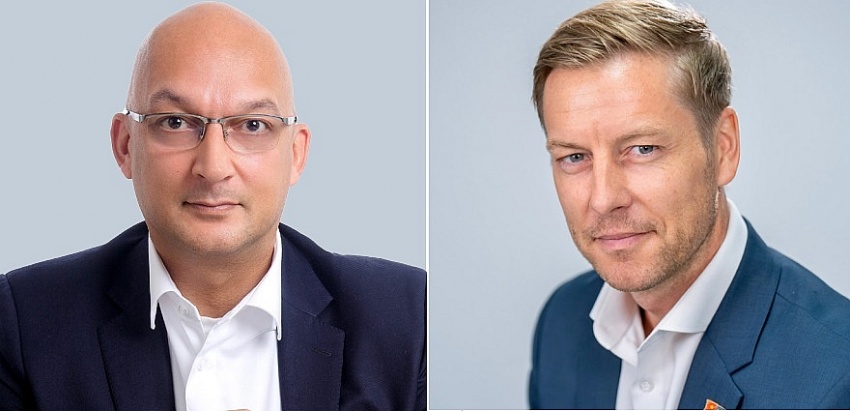 |
| Elmar Dutt, Co-chairman, German Business Association(left) and Torben Minko, Co-chairman, German Business Association |
As of 2023, German businesses invested in an accumulated 463 projects worth an accumulated $2.68 billion, making Germany the 17th biggest investor in Vietnam. With the presence of nearly 500 German companies in Vietnam, over half of them have been established in Ho Chi Minh City.
Most German manufacturing sites are located in southern Vietnam concentrating on Binh Duong, Dong Nai, and Ho Chi Minh City. The biggest investments in the south are made by Bosch, followed by STADA.
Nevertheless, several important German companies are also located in northern Vietnam, mainly around Hanoi and Haiphong, including B. Braun and Messer, with some of the oldest and biggest investments here. The latest additions are Magnetec and tesa in Haiphong, as well as Lecka in Hanoi.
Most German investments in central Vietnam may be found in the provinces of Binh Dinh and Phu Yen, as well as the greater Danang region. Recent additions include Dräxlmaier, as well as Wendler and OKE in Quang Nam. In Binh Dinh, Leonhard Kurz is currently establishing a factory.
Vietnam has a large and rapidly growing market with a population of 100 million people, which presents significant opportunities for German businesses. Other regional countries like Thailand, Indonesia, and the Philippines also have sizable markets, but their growth rates vary.
Traditionally, German investments were mainly directed to Singapore, Thailand, and Malaysia. These countries host an established cluster of German industries, such as the automotive sector in Thailand or research and development hubs in Singapore. Nevertheless, the trend is changing, and Vietnam is now considered as an investment location of increasing attractiveness.
German investors favour Vietnam to supplement their China operations for its lower-cost inputs, alternative markets, and convenient geographic and supply route proximity to China. Vietnam itself also offers a rising middle class and opportunities to establish German brands for Vietnamese consumers with local distribution and supply chain.
Vietnam has emerged as a major manufacturing hub, particularly in industries like electronics, textiles, and automotives. German businesses have been actively involved in these sectors, taking advantage of Vietnam’s competitive labour costs and export-oriented policies.
Also, for the consumer market, Vietnam is increasingly attractive as a regional base for brands to export to ASEAN. German brands have increased their reach to Vietnamese consumers significantly over the last years, ranging from cars to home appliances and fast-moving consumer goods.
Based on that, a raft of companies has opened new production plants in a variety of sectors. Most of these companies choose ready-built factories over brownfield investments due to the faster time-to-market as well as reduced capital commitment. However, we expect that many of them will expand their exposure in Vietnam in the future as the local and Asian market continues to grow, leading to new greenfield and extended brownfield investments.
The trend in German investment in Vietnam in 2024 is expected to continue to grow. This was supported by the high-level visit of President Frank-Walter Steinmeier in January, accompanied by a high-level business delegation, to discuss opportunities for German companies in Vietnam.
German companies recognise the Vietnamese government’s efforts to improve the business climate and anticipate further reforms to enhance the ease of doing business. Vietnam has been investing in infrastructure projects, such as ports, roads, and industrial zones, to support its growing economy. These activities set the base for many German investors.
However, there are still some challenges that need to be addressed to fully meet the expectations of German companies. These include issues related to corruption, intellectual property rights protection, and the enforcement of contracts. To promote German investment in the future, Vietnam could consider legal reforms in these areas to provide a more favourable and secure business environment.
Finally, the ease of doing daily business still requires reforms to increase attractiveness. The high level of bureaucracy, especially cross-border finance, customs, and licensing, is an ongoing challenge. A significant improvement in this area will be needed to set Vietnam as a leading investment location in the region and globally.
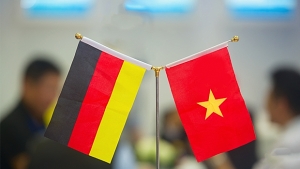 | German companies eye Vietnamese healthcare in anticipation of EVFTA Over 60 per cent of German companies confirmed interest in doing business in Vietnam and intend to set up businesses in both Asia and Vietnam, lauding the great opportunities for both sides from the EU-Vietnam Free Trade Agreement (EVFTA), according to the latest Vietnam healthcare survey conducted by GIC/AHK Vietnam. |
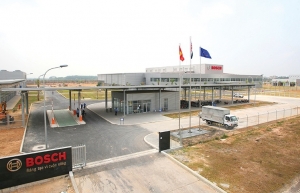 | Germans hope to advance in Vietnam The strategic partnership established in 2011 between Vietnam and Germany has demonstrated the determination to expand and strengthen multifaceted cooperation between the two countries. Marko Walde, chief representative at the Delegation of German Industry and Commerce in Vietnam (AHK Vietnam), discusses why Vietnam is so attractive and what German companies expect to gain. |
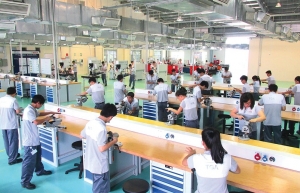 | Evaluating German-Vietnamese economic relations In 2022, Vietnam and Germany will look back on 47 years of diplomatic relations, during which they have maintained historically solid and close connections. The two countries have come together to form strong ties since 1975. Today, there are around 430 German companies in Vietnam. |
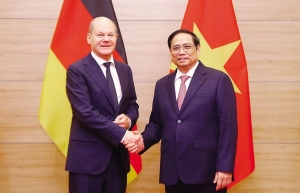 | Scholz visit caps off German agreements Vietnam and Germany last week inked several new cooperation deals on national defence, vocational training, and energy transition, as the EU-Vietnam Free Trade Agreement continues to boost the existing strategic partnership. |
What the stars mean:
★ Poor ★ ★ Promising ★★★ Good ★★★★ Very good ★★★★★ Exceptional
Related Contents
Latest News
More News
- SK Innovation-led consortium wins $2.3 billion LNG project in Nghe An (February 25, 2026 | 07:56)
- THACO opens $70 million manufacturing complex in Danang (February 25, 2026 | 07:54)
- Phu Quoc International Airport expansion approved to meet rising demand (February 24, 2026 | 10:00)
- Bac Giang International Logistics Centre faces land clearance barrier (February 24, 2026 | 08:00)
- Bright prospects abound in European investment (February 19, 2026 | 20:27)
- Internal strengths attest to commitment to progress (February 19, 2026 | 20:13)
- Vietnam, New Zealand seek level-up in ties (February 19, 2026 | 18:06)
- Untapped potential in relations with Indonesia (February 19, 2026 | 17:56)
- German strengths match Vietnamese aspirations (February 19, 2026 | 17:40)
- Kim Long Motor and AOJ Suzhou enter strategic partnership (February 16, 2026 | 13:27)

 Tag:
Tag:




















 Mobile Version
Mobile Version